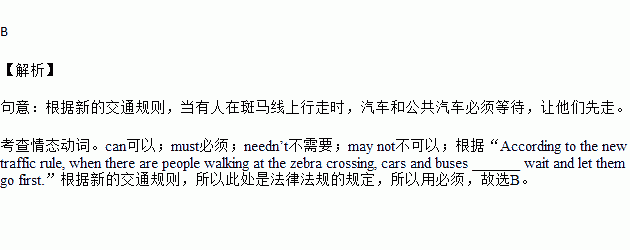题目内容
According to the new traffic rule, when there are people walking at the zebra crossing, cars and buses ______ wait and let them go first.
A.can B.must C.needn’t D.may not
随着科技的发展,工人智能(AI)正在改变我们生活的方式。例如,机器人被广泛应用。目前,拥有一台机器人有什么优势和劣势呢?你是否会购买一台机器人呢?请你根据下列表格中的要点提示,用英语分析其优劣并说明是否购买的理由。
优势 | 用途广泛 服从指令 考生自拟(至少1点) |
劣势 | 电池寿命不长 容易感染病毒 考生自拟(至少1点) |
是否购买的理由 | 考生自拟(至少2点) |
注意:1. 词数90左右。
2. 短文须包括所有要点,不要逐词翻译,可适当发挥,使短文连贯、通顺。
3. 短文中不得提及真实的人名、校名等相关信息。
____________________________________________________________________________________________
____________________________________________________________________________________________
____________________________________________________________________________________________
____________________________________________________________________________________________
____________________________________________________________________________________________

